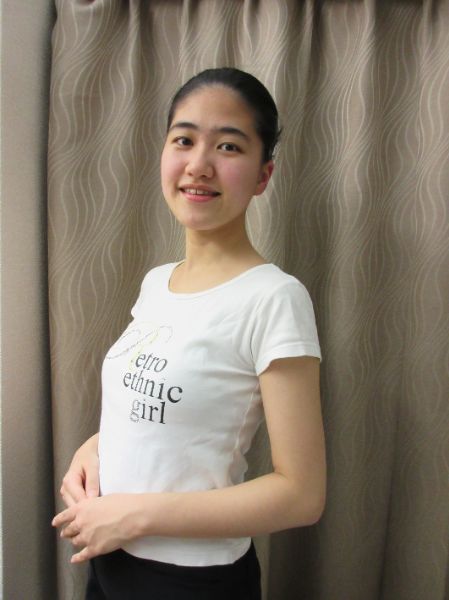“bright and clean in Tokyo,” a poem by Uchimura Kaho (内村佳保), was originally submitted for Issue 30 of Superstition Review.
bright and clean in Tokyo
My uncle is dead. He was wrapped in dry ice, wearing a white kimono on the tatami. My mother’s brother. He was often angry. Few things did we ever talk about. The doctor told me he was dying. A car from the Funeral Home carried him away. We were as black as ravens. It takes a long time to burn a person. Uncle takes two hours. Imagine the bones at the excavation site. Not all the bones will fit in the urn. I order an egg sandwich at the crematorium coffee shop. The sound of the teacups. The salad arrives quietly. No one smiles widely. No one is crying, either. The sweep window leads to the garden. Death is right next door. People are
burning, but the crematorium coffee shop is very bright and clean.
Uchimura Kaho (内 村 佳 保 ) is a Japanese writer. Her work won the grand prize at the Reconstruction Agency Slogan Competition 2017, Shimazaki Toson Poetry Competition 2021, Minokamo city Poetry Competition 2021, and Tajimi city Poetry Competition 2021. She is the author of three novels, Jyuusan-sai-no-taidou, Inishie-gatari vol.1, and 7-second unison which won the grand prize at Funahashi Seiichi Under 30’s Literary Prize 2021. Her work has appeared or is forthcoming in North Dakota Quarterly, Mantis (Stanford University), The Ekphrastic Review, New World Writing, Cordite Poetry Review, Eunoia Review, Sazeracs, Smoky Ink, Seashores, and Déraciné. Learn more on her website.
Amsterdam University College’s creative writing students, in an on-going project with Superstition Review, have chosen Uchimura Kaho’s “bright and clean in Tokyo” for a feature in our blog. They have also curated a variety of questions for Uchimura Kaho about “bright and clean in Tokyo” and her writing process. We are pleased to include those questions and Uchimura Kaho’s responses in an interview below. Please note that the transcript has been edited for clarity.
Uchimura Kaho: Hi! I’m Uchimura Kaho. I’m a Japanese writer. When I was a junior high school student, I published my first novel, Jyuusan sai no taidou (2008). When I was a university student, I published my second novel, Inishie gatari vol. 1 (2014). Until I was a university student, I mainly wrote novels. When I was about to graduate from university, I started writing poetry as well. At the university library, I picked out a few poetry magazines, and I felt as if someone was telling me to try writing poetry.
Since the beginning of the pandemic, I also began to write in haiku, tanka, and senryu and submitting them for awards. Japanese people believe that spirits dwell in all things. What I feel when I compose poems, haiku, tanka, and senryu, is that they have the rhythm of Japanese spirits. The cherry blossoms, geckos, flies, rice balls, the full moon, the stars, and the gentle breeze and so on… They are all telling me to compose things as haiku, tanka, and senryu.
I compose their words into letters with them. Sometimes, they ask me to compose haiku, tanka, and senryu that I have never thought of. For example, one of my tankas is, “On the night of the day I dropped 500 yen, there was a full moon, and I found my lost item in the sky.” Believe it or not, the full moon gave me this tanka as a gift as I was walking down the street at night. I asked the full moon, as I walked, if I could change the tanka a bit—in my mind, of course—but the full moon told me this tanka was good—absolutely good, and that I should keep it as it was. As a result, this tanka won first prize in a newspaper tanka competition. So I guess, the full moon was right.
Tanka, haiku, and senryu are short, so I try to convey the hunch as directly as possible. Poems and novels are longer, so I try to mix in a little bit of my feelings with the hunch. It is like mixing a little bit of blue into red to make purple. When I can make a beautiful purple, I feel very happy. The process is the same whether I’m composing works in Japanese, English, or other languages.
Now, I’d like to talk about my poem “bright and clean in Tokyo.” When I was offered this interview, I was in Nagano prefecture, where I won the grand prize at the 196th anniversary of Kobayashi Issa’s passing haiku competition. And I thought the scenery of Nagano and the photos I took in Seattle seven years ago when I performed at the Seattle Cherry Blossom and Japanese Cultural Festival were perfect for this poem. I hope you enjoy these photos, as well.
Since I experienced the COVID-19 pandemic, I’ve often thought about human death. Most Japanese people are cremated when they die, and I wanted to introduce Japanese cremation, so I wrote this poem. Death is rather sad and has a dark aspect. But the coffee shop next to the crematorium is quiet, well-cleaned, and filled with silent light, as if the fear of death is absorbed somewhere in the room. The people who are being burned are about to pass the point of no return while we are right there, eating sandwiches as if nothing happened. Opposite worlds are contained and coexist in the same space, and this is repeated day after day. This is an unexplainable, strange feeling that I want to share with you.
Thank you for listening!
